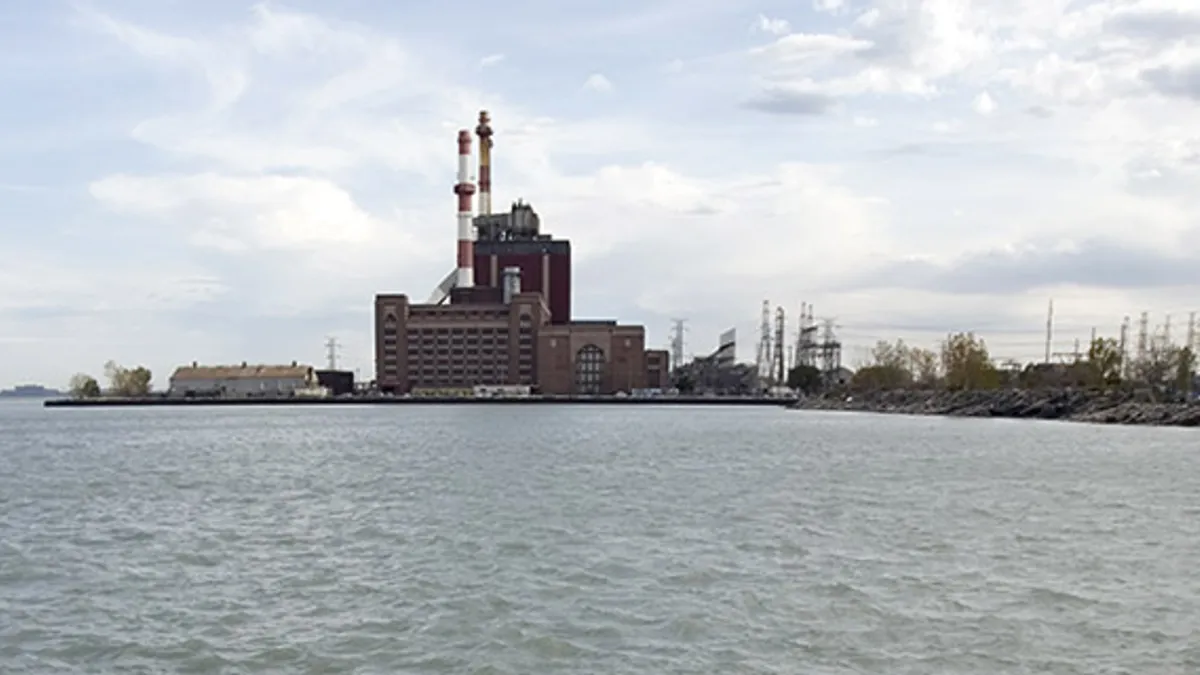Dive Brief:
- The Illinois Pollution Control Board (IPCB) issued two decisions on Thursday changing air pollution controls, mandating retirements within Vistra Energy's coal generation fleet and agreeing with climate advocates in a lawsuit regarding the groundwater contamination by four coal plants owned by a subsidiary of NRG Energy.
- The order directs Vistra to retire 2 GW of coal generation by the end of the year. Climate advocates are praising the IPCB order, although they claim the Vistra-aimed decision impacting the state's Multi-Pollutant Standard (MPS) potentially allows coal generators to retire coal plants with pollution controls ahead of older units in their fleet that have higher greenhouse gas emissions.
- The process to retire so much coal by the end of the year must begin very soon, as Vistra must notify the Midcontinent ISO (MISO) of any intended retirements 180 days in advance.
Dive Insight:
The IPCB action is part of a wider trend of states strengthening air pollution regulations as the federal government is pursuing policy rollbacks, according to Justin Vickers, attorney with the Environmental Law & Policy Center (ELPC).
The MPS established caps specifically for sulfur dioxides and nitrogen dioxides, but climate advocates have been comparing the order with the Environmental Protection Agency's newly released Affordable Clean Energy (ACE) plan on carbon. Last Wednesday, the EPA unveiled its new ACE rule, which advocates say will reduce compliance costs by up to $400 million annually, compared to the previous Obama-administration proposal.
The IPCB order implements a new cap on pollution across Vistra's entire fleet — a mass-based cap. The cap will lower as more generation is retired, including if generators are retired ahead of the end-of-the-year deadline 2 GW of coal generation.
Climate activists welcomed the new changes to the MPS rule but call for stronger pollution reduction plans to ensure the dirtiest units are forced offline first.
Rate-based caps would ensure that individual units meet their own emissions standards, so plants with high emissions operate less. However, switching to a mass-based cap could enable Vistra to close its pricier, more efficient coal plants ahead of units that pollute more, because the emissions caps would be measured across units as a whole, according to Greg Wannier, an associate attorney at Sierra Club.
Running plants with scrubbers, the technology that helps mitigate sulfur and nitrogen dioxide emissions, has a high overhead cost, he said, making scrubber plants uneconomic compared to other low- to zero-emissions options. The rules should favor cleaner coal plants, instead of the most economic option, according to Wannier, so that plant operators like Vistra aren't "going backwards" on emissions standards and adversely impacting surrounding communities.
The latest IPCB order is a much stronger rule than originally proposed under former Republican Gov. Bruce Rauner in 2017. Democratic Gov. J.B. Pritzker prompted the IPCB to redraft the order, which now assures that the mass-based caps will decrease as units are retired.
Vistra did not reply to requests for comment on the Multi-Pollutant Standard order.
Coal ash contamination
The IPCB on Thursday also agreed with environmental advocates in their lawsuit against NRG subsidiary Midwest Generation over the alleged coal ash contamination from four coal power plants in Waukegan, Joliet, Pekin and Will County. The case, which started in 2012, will require a determination of remedy — Sierra Club, ELPC, Prairie Rivers Network and Citizens Against Ruining the Environment announced that they will fight for the most stringent remedy possible and demand to remove the coal ash waste.
Illinois' state legislature passed a bill in May to mandate coal ash site reviews on a case-by-case basis. The IPCB decision on four plants owned by Midwest Generation could establish a precedent for the review of other coal ash sites, according to Sierra Club's Wannier.
The IPCB's decision on the case represents another step by the state to strengthen environmental regulations while the EPA attempts to roll them back.
Trump's EPA rolled back Obama-era groundwater guidelines for coal ash contamination in July 2018, which gives states more leeway in groundwater monitoring. The second phase of the rulemaking is expected this year.
Utility filings from across the country found that over 90% of coal plant sites have unsafe levels of one or more toxic coal ash pollutant, according to a March report from the Environmental Integrity Project and Earthjustice. Oversight of groundwater contamination in Illinois is particularly important as the state has the largest amount of coal ash impoundments in the country — at least 80.















